Blog
The Fishing Industry Must Be Held Accountable
June 21st, 2024
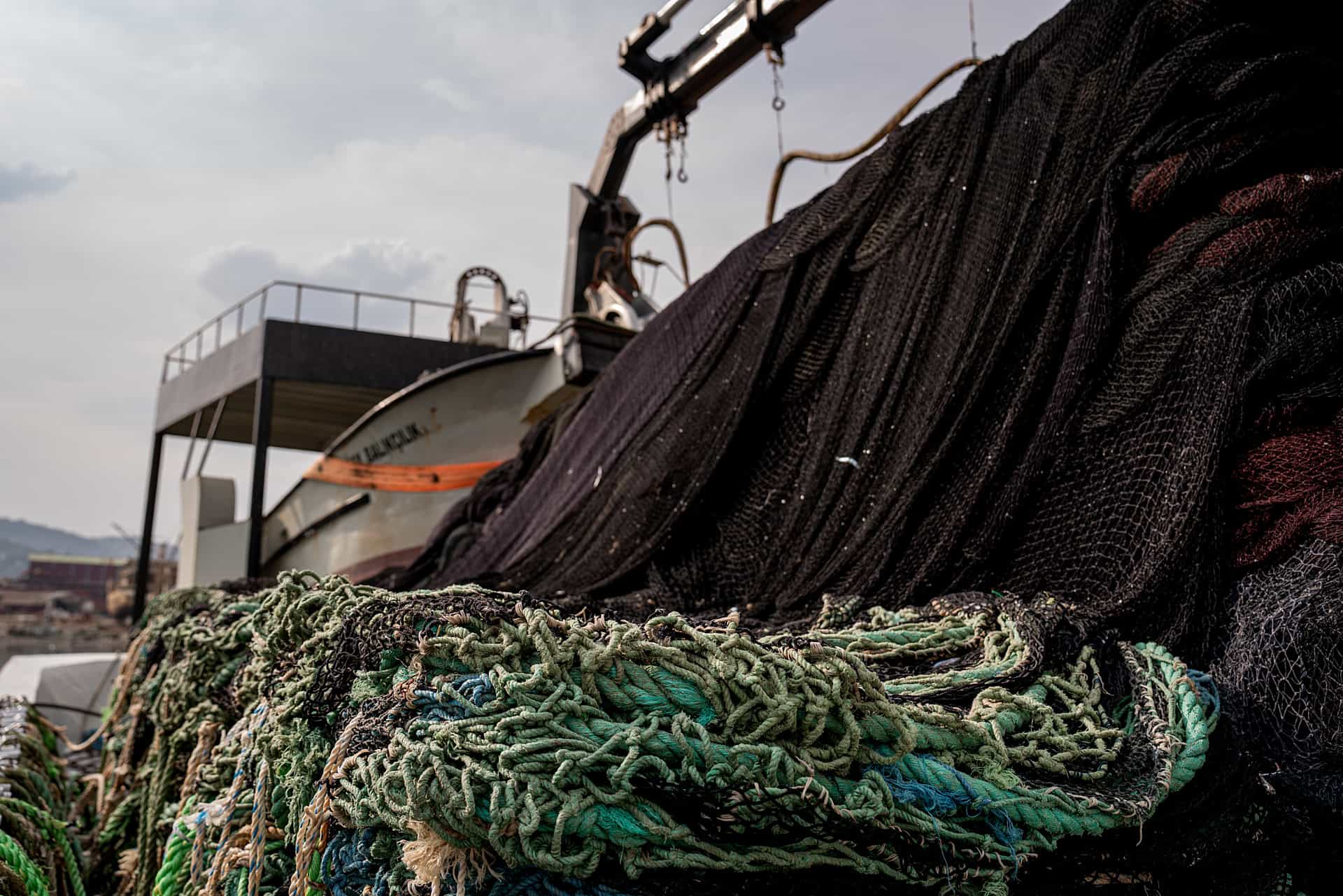
Image: We Animals Media
“The data shows that for the 127 vessels now with cameras, reporting of dolphin captures increased nearly seven fold while reported albatross interactions were up 3.5 times. The reported volume of fish discarded has increased by almost 50%”, Greenpeace explains.
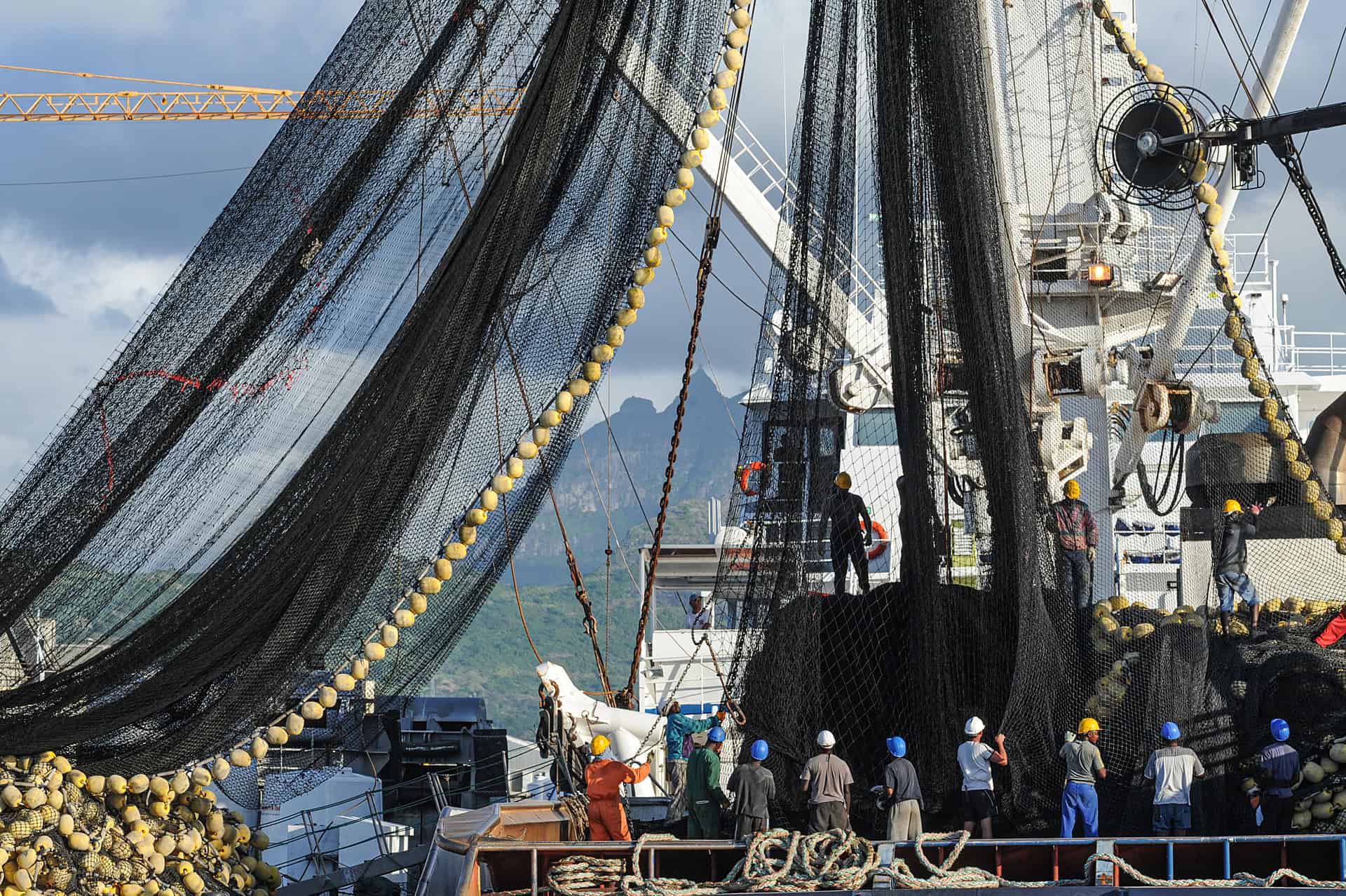
Image: We Animals Media
Greenpeace believes this should be enough proof that cameras on boats are needed on the entire commercial fleet including deep water vessels because the fishing industry is not telling the truth. This new data proves the public cannot simply rely on the industry itself to tell the truth.
“Having accurate data means we know the true cost of commercial fishing on marine wildlife, which means better decisions can be made.”
However, the camera footage is not accessible by general members of society because the fishing industry wants to regulate its own activities, despite previously lying about bycatch numbers. The whole point of installing cameras on fishing boats is to improve transparency of the industry, not have it kept private, as the Minister of Oceans & Fisheries wants. People need to know what the fishing industry is hiding and be able to make informed choices when choosing a meal.
Over 40,000 people have signed the Greenpeace petition calling on the New Zealand government to protect oceans, implement cameras on the whole commercial fishing fleet, and provide transparent reporting.
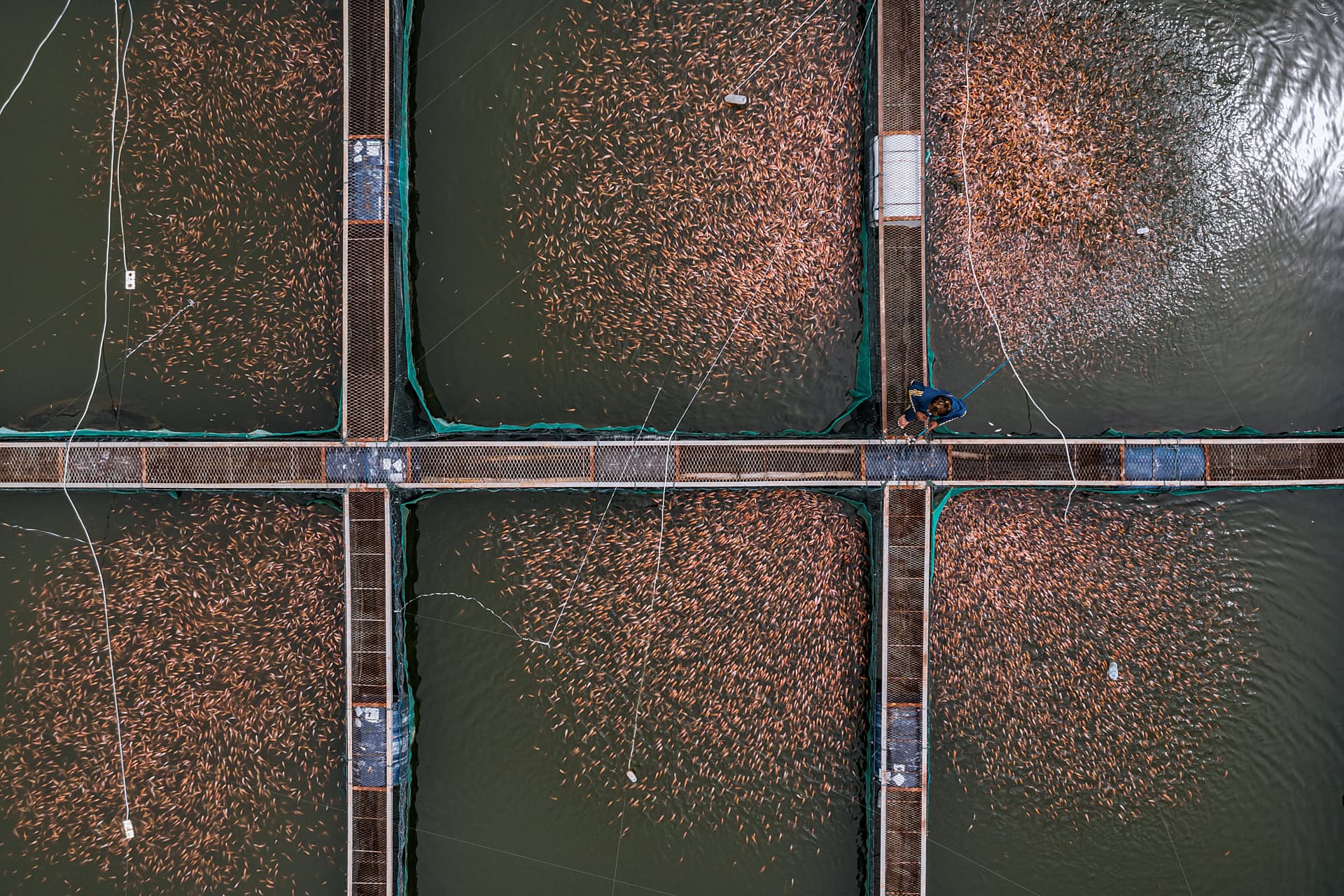
Commercial fish farm; Image: We Animals Media
This transparency on New Zealand’s fishing boats should serve as an example for other parts of the world. China is the country with the biggest fish production. A large portion of fish in China are raised and killed on aquafarms that keep millions of fish at a time and span the size of four football fields.
Demand one of the Plant Based Treaty is to relinquish and not create new fish farms or expand existing aquaculture farms as they are extremely hazardous to the environment and create massive amounts of waste. A study in the journal Science found that a two-acre fish farm produces as much waste as a town of 10,000 people. PETA reports that “Salmon farms in British Columbia were found to be producing as much waste as a city of half a million people.”
In addition to aquafarms, China sources fish from the sea via boats that should also have cameras installed.
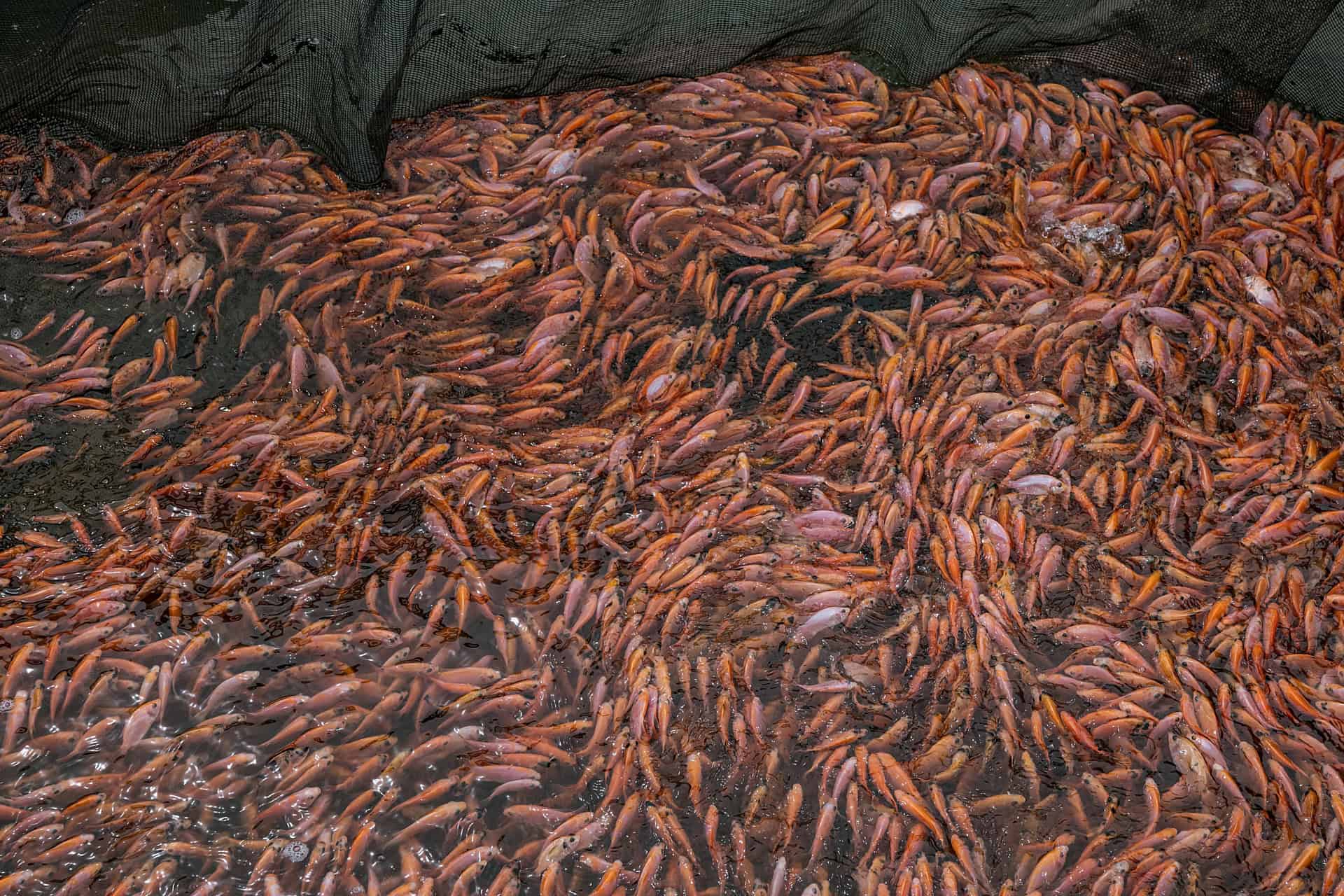
Image: We Animals Media
Greenpeace East Asia reports; “China is catching an estimated four million tons of fish too young or small for human consumption every year, exacerbating the country’s over-fishing problem and potentially decimating fish stocks.
They explain, “that the number of “trash fish”, the name given to fish with little or no market value, caught by Chinese fleets each year is equivalent to Japan’s entire annual figure…. China’s seas are already heavily overfished.”
In the United States, Animal Equality reports 1.3 billion farmed fish are being raised for food and the commercial fishing industry kills nearly a trillion animals worldwide annually.
Oceana Canada reports that in Canada some fisheries discard more fish at sea than they bring to port to kill and sell for food. “There is no requirement to report on how many Canadian non-commercial species are killed through bycatch, so the amount of waste is ignored.”
Seaspiracy, a 2021 documentary streaming on Netflix, uncovers alarming global corruption in the commercial fishing industry and links this to climate change. This powerful film proves that fishing is the greatest threat to marine wildlife and has wiped out 90 percent of the world’s large fish. Seaspiracy documents that fishing operations kill 30,000 sharks every hour and 300,000 dolphins, whales and porpoises annually.
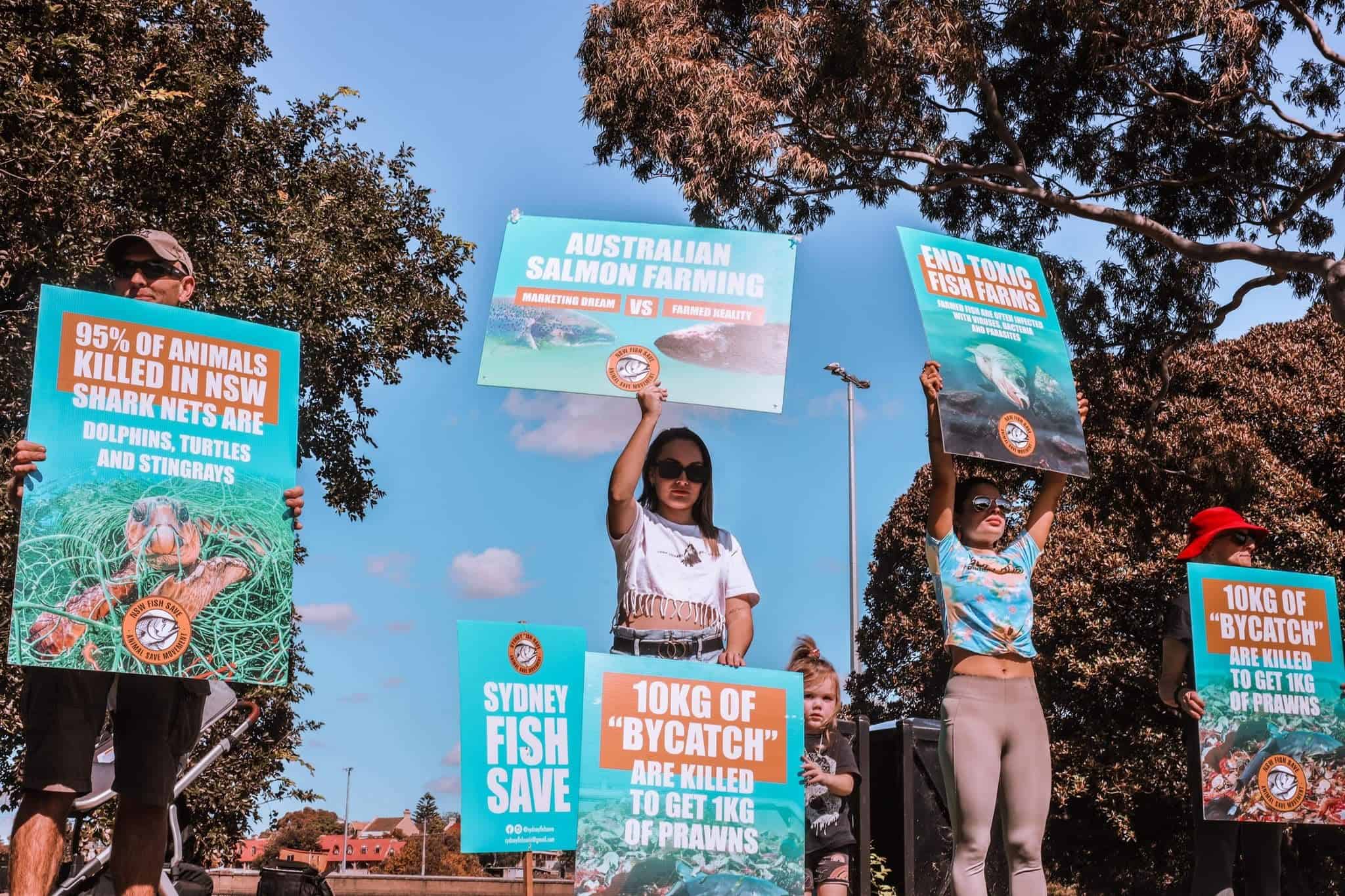
It’s time to take action
Not only do we need transparency on fishing vessels around the world, but we must transition away from eating fish and move towards a healthy plant-based food system.
Consider holding a Fish vigil in your area and sign the Animal Save Movement petition to stop Secretary of State for Health and Social Care in the UK prescribing fishing as an alternative to antidepressant and anxiety medication and instead adopt alternatives which are kind to others and the planet. You can also start a team in your area to campaign for your city to endorse the Plant Based Treaty and encourage individuals and institutions to support plant-based meal plans.

Miriam Porter is an award-winning writer who writes about veganism, social justice issues, and eco-travel. Miriam currently lives in Toronto with her son Noah and many rescued furry friends. She is a passionate animal rights activist and speaks up for those whose voices cannot be heard.
More from the blog
Ten Plant Based Treaty Celebrity Endorsers Making A Difference
By Miriam Porter
Kickstart Spring With A Nourishing Green Smoothie By Dr. Brooke Goldner
By Miriam Porter
From Global Advocacy To Menu Changes: Plant Based Treaty’s Goals For 2025
By Miriam Porter



